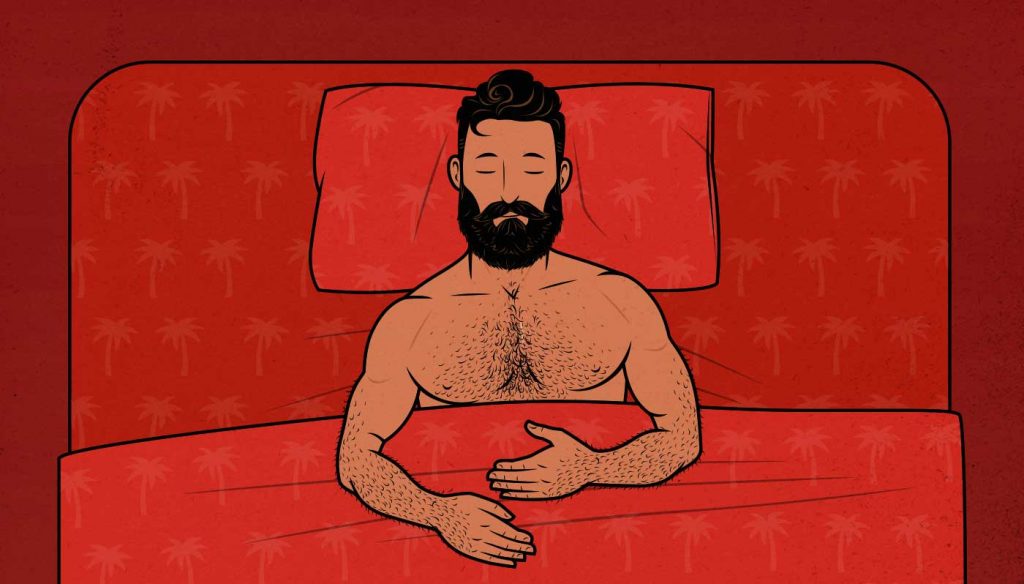
How Does Sleep Affect Muscle Growth & Fat Loss?
Sleep is the foundation of a good muscle-building and fat-loss routine. It gives us the drive to challenge ourselves in the gym, the appetite to eat a big muscle-building diet, and the willpower to implement new habits. But for the sake of giving sleep the credit it deserves, let’s put aside that it improves our willpower, motivation, compliance, exertion, and all of the other (super important) secondary benefits. Here’s how sleep can directly increase muscle growth and fat loss (study):
- More testosterone: getting enough sleep boosts our circulating levels of testosterone, improving our ability to gain muscle quickly and leanly.
- More insulin-like growth factor 1 (IGF-1): getting enough sleep will also raise our IGF-1 levels, allowing us to better recruit satellite cells into our muscle fibres, which is critical for overcoming size and strength plateaus.
- Less cortisol: getting enough sleep reduces chronic cortisol levels, reducing muscle breakdown and increasing muscle growth.
- Less Inflammation: getting better sleep reduces chronic inflammation, speeding up muscle repair, reducing our risk of injury, and improving our general health.
- Better nutrient partitioning: getting enough sleep makes our bodies prefer getting stored energy from fat instead of muscle, allowing for leaner muscle gains.
- More muscle growth. As we’ll cover in the introduction, optimizing our sleep has been shown to increase gains in lean mass by around 30% (while simultaneously reducing fat gain).
Given how powerful sleep is for building muscle and losing fat, it pays to approach our bedtime routines with the same fervour that we approach our workout routines and diets. If we give sleep a high priority in our lives, it won’t just improve our body composition, it will improve everything.
Here’s how to improve your sleep for faster and leaner muscle growth.
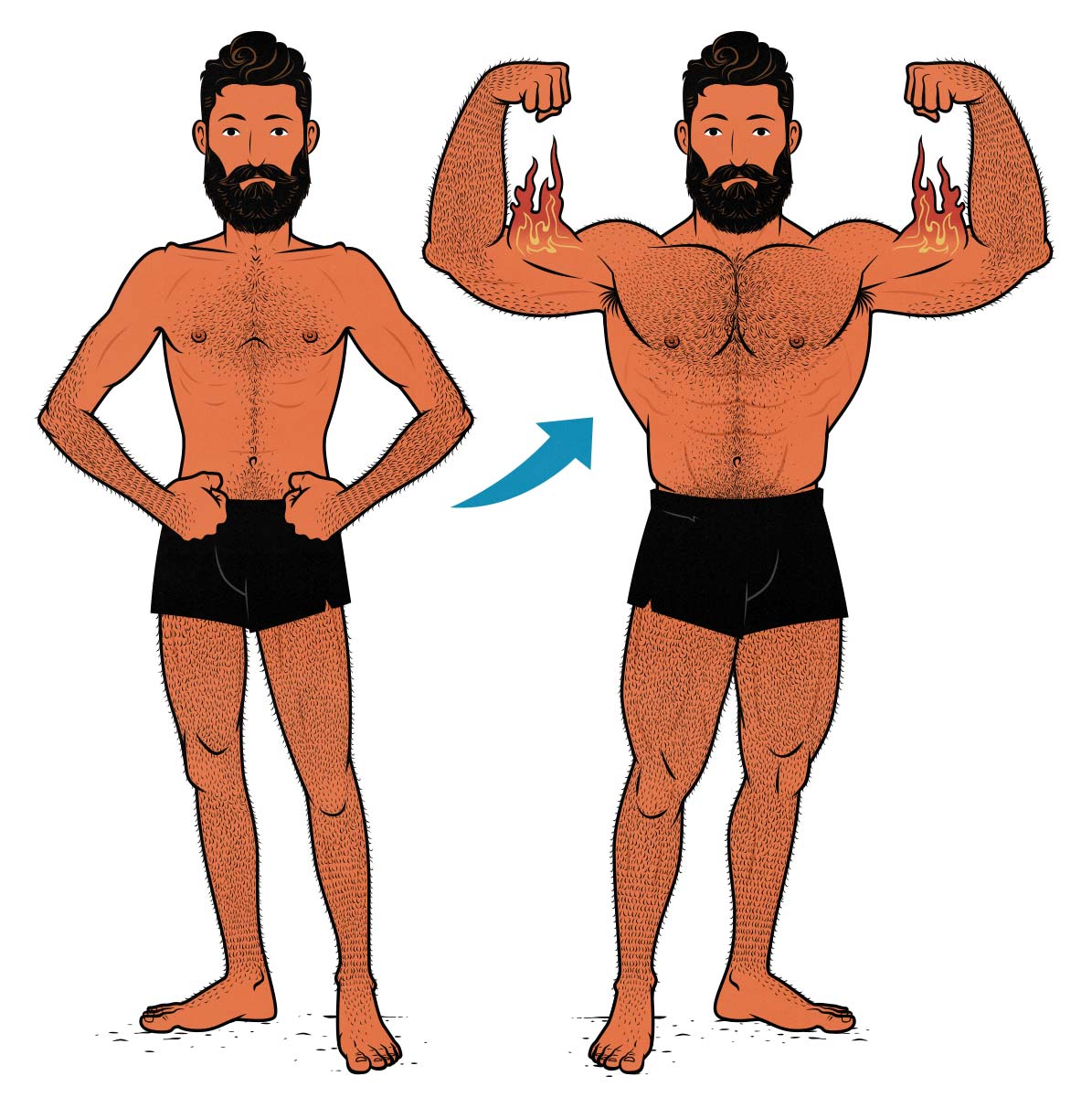
How Sleep Affects Muscle Growth & Nutrient Partitioning
Before we dig into the details of improving our sleep, let’s take a quick look at a study that measured body composition changes after ten weeks of lifting weights. Half of the participants were given just the weight training program, whereas the other half were also given advice about how to improve their sleep.
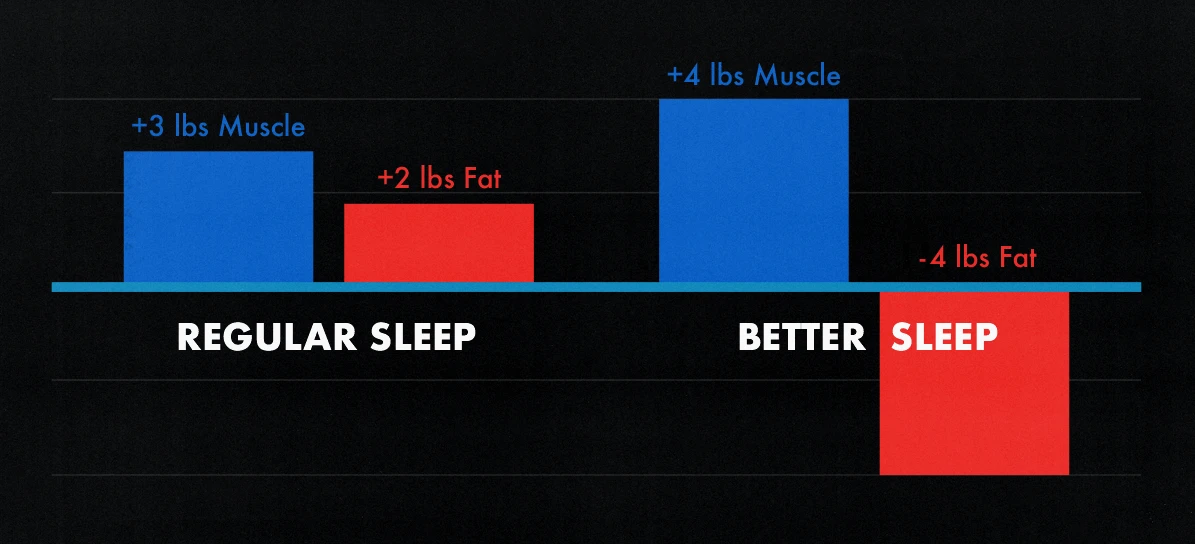
What we’re seeing is that simply teaching the study participants how to improve their sleep caused them to gain 30% more lean mass over the course of the ten-week study. But it gets even better. Look at how much fat they lost!
The participants who improved their sleep gained muscle more quickly while also losing fat. This suggests that sleep is a powerful tool for improving nutrient partitioning—for shuttling the food we eat towards muscle growth instead of fat gain. Previous research found this same nutrient partitioning effect. A third study found a possible mechanism for this: getting enough good sleep increases our muscle protein synthesis.
Perhaps most interestingly of all, the study participants weren’t put in a sleep lab or anything fancy. They were merely told a few simple ways they could improve their sleep. These are results that we can get right here at home, from the comforts of our very own beds.
Plus, in addition to helping us build muscle more quickly and leanly, getting better sleep can also improve our workout performance (study, study) and lower our overall inflammation (study).
Sleep is a powerful tool for increasing muscle hypertrophy, reducing fat gain, improving nutrient partitioning, and lowering inflammation. And we can get those benefits simply by learning how to min-max our sleep.
How to Optimize Sleep for Muscle Growth & Fat Loss
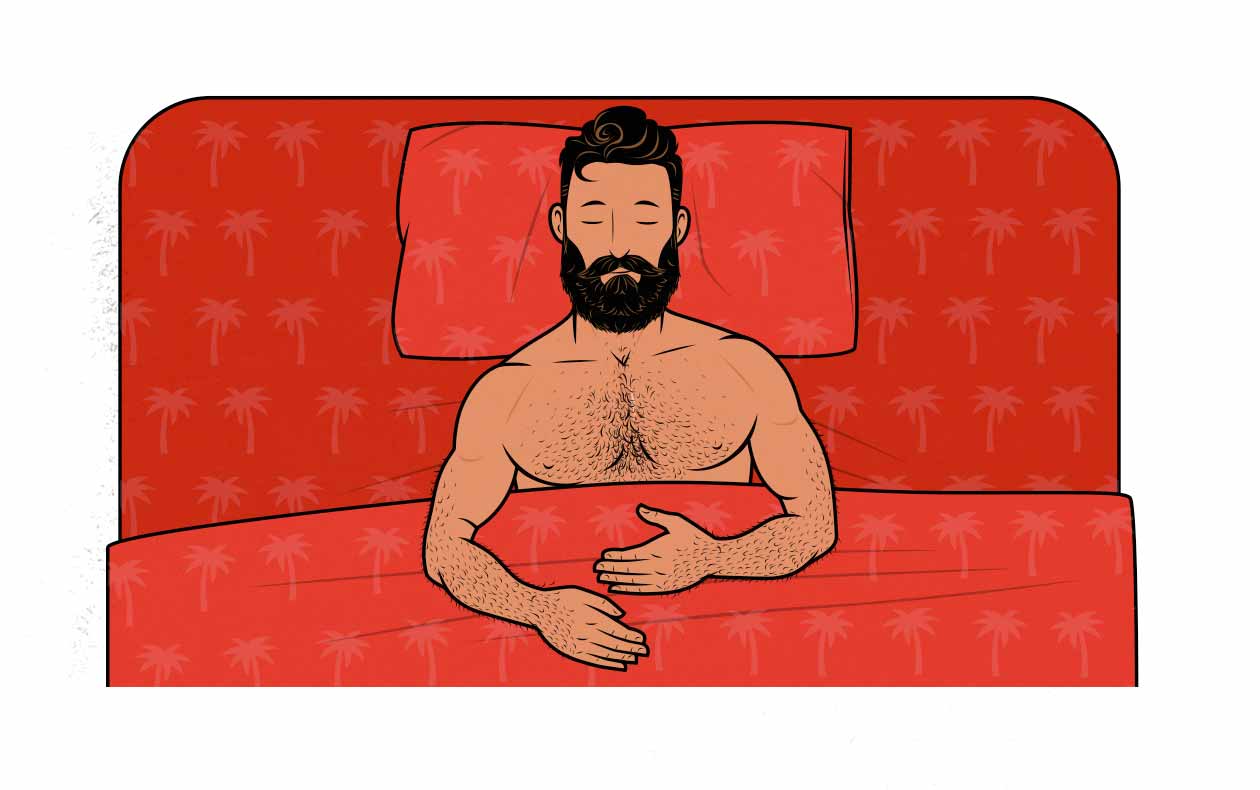
Sleep Hygiene Guidelines
According to the sleep scientist Dr Greg Potter, who holds a doctorate degree in sleep science, there are several techniques we can use to improve the quality of our sleep. This is the same sort of advice that the study participants used to increase their muscle growth by 30% while simultaneously losing fat.
These sleep-optimization techniques are called “sleep hygiene,” and the idea is that the more of these things we do, the more likely we are to get a good night’s rest. Now, we don’t necessarily need to do every single thing on this list, and some of these techniques are more important than others, but before we dig into the nuance, let’s quickly go through the full list:
- Get to bed early enough: make sure that you get to bed early enough that you can get up to eight hours of sleep before needing to wake up. Even better if you wake up before your alarm clock goes off.
- Reduce chronic stress: stress has been linked with both fatigue and insomnia (study, study). The more stressed you are, the harder it can be to fall and stay asleep, and the more likely you are to be fatigued during the day. This is easier said than done, but try to reduce your overall stress and anxiety levels, especially near your bedtime, and especially near your bedroom. If you have a lot weighing on your mind, make a to-do list in the evening so that you won’t need to think about it at night. Save the hour or two before bed for relaxing activities that have nothing to do with work, social media, or phones. Reserve your bedroom for relaxing activities like sleep, sex, and reading novels. And make sure to exercise.
- Get enough sun: spend some time outside in the sun during the day, and ideally for half an hour or more. Going outside first thing in the morning works well, as does going outside around lunchtime. This will help you fall and stay asleep more easily at night (because of increased melatonin production).
- No alcohol late at night: avoid drinking booze within four hours before your bedtime. Having a drink or two per day seems to be fine for general health, but you’ll want to keep those drinks well away from your bedtime, given that alcohol can interfere with the quality of your sleep.
- Don’t have caffeine near your bedtime: there’s nothing unhealthy about drinking coffee or tea; you just need to make sure you aren’t having it too close to your bedtime. Most experts recommend having your last caffeinated drink at least 9 hours before bed (study). You may also want to limit your caffeine consumption to one milligram per pound of body weight daily. (I find that having a early-afternoon coffee helps me avoid a mid-afternoon energy crash. I don’t strictly obey this one. My last coffee is about 7 hours before bed.)
- Don’t eat right before bed: it’s usually best to avoid eating within two hours of going to bed. In the final meal of the day, though, research shows that having high-glycemic foods that are rich in carbohydrates helps people fall asleep more quickly (because of increased melatonin production).
- Eat a bigger breakfast: it’s often best if your final meal is proportionally small compared to your other meals. I ignore this one while bulking. It makes it too hard to get my calories in. I prefer to have a big meal right before bed. But it’s technically better to pack more of your calories into your earlier meals.
- Dim the lights at night: dim the lights a couple of hours before going to bed, and ideally switch to warm amber-coloured tones. If you use screens before bed (such as using a phone, computer, or watching TV), then consider installing an app that changes the screen colour (such as f.lux) or getting blue-light blocking glasses. Looking at screens before bed can reduce sleep quality (study). If we avoid them, dim them, and use warmer tones for an hour or two before bed, we’ll produce more melatonin, making it easier to fall into a restful slumber.
- Have a hot shower at night: if you have trouble falling asleep quickly, have a hot shower 40 minutes before heading to bed. As your body cools down after the shower, it will prepare for sleep.
- Quiet your mind: in the final half-hour before bed, Dr Potter recommends meditation, but he points out that anything that quiets your mind can help. That might mean reading a good novel or listening to a relaxing podcast. Just remember that what you’re doing shouldn’t just be enjoyable, but it should also be relaxing. For example, if I read non-fiction books before bed, I have a perfectly nice time, but it gets my mind racing with ideas. So instead, I read fiction—often sci-fi or fantasy. As my mind gets lost in made-up worlds, I relax and drift off to sleep. (Here’s why fiction is good for improving sleep, and here are some of my favourite fantasy books.)
- Keep your bedroom cool: it’s easiest to fall asleep in a cool temperature (under 68°F, 20°C).
- Keep your bedroom dark: either darken your bedroom or wear a sleep mask. It’s nice to wake up to sunlight, but if you have to choose, it’s more important to sleep in darkness.
- Destroy or block noise: either quiet your room, use a white noise machine, or wear earplugs. If you’re using earplugs, Dr Potter says that silicon earplugs tend to work best.
- Create a consistent routine: Dr Potter doesn’t mention this, but consistency is also crucial. Try to eat and sleep at around the same time every day. You may even want to set alarm clocks to remind yourself that it’s snack time, that it’s time to turn off the TV, or that it’s time to head up to bed with your book. Nobody will accuse you of being exciting, but they may suspect rampant steroid abuse.
Now, some of these factors are more important than others. Some of them may or may not have a noticeable impact, whereas others are absolutely essential. Let’s go over the more important aspects of getting a proper night’s sleep.
Getting More Sleep
The most important thing is spending enough time in bed. After all, if you aren’t spending at least eight hours in bed every night, how could you possibly get eight hours of sleep, let alone eight hours of good sleep? This means that getting to bed at least eight hours before you need to wake up is priority number one. If that’s hard, try setting a bedtime alarm clock.
However, even if you set aside enough time for sleep, that doesn’t mean you’ll fall asleep right away, and it doesn’t mean that you’ll stay asleep all night long. If you suffer from onset insomnia or can’t fall back asleep after waking up too early, that can make it difficult to get enough sleep.
To help you have trouble falling asleep after getting in bed, don’t just set an alarm clock for when you need to head to bed, set one for when you need to start gearing down for bed (e.g. turning off electronics and settling down to read on the couch). That way by the time you head to bed, you’re already feeling relaxed and sleepy.
The next issue is waking up too early. First, keep in mind that just because you wake up before your alarm clock doesn’t mean that you got enough sleep during the night. As you’ve probably noticed, if you go to bed knowing that you need to wake up early, you’ll naturally wake up early—often before your alarm clock goes off. This happens because your body has started pumping you full of cortisol (a stimulating hormone) to help you wake up early. It doesn’t mean that you got a full night’s rest, it just means that your body is begrudgingly making do with less.
If you find that you’re waking up too early, this is often a circadian rhythm problem. If your body doesn’t have a consistent sleep schedule, then it can get confused about when to produce melatonin (which makes us sleepy) and cortisol (which helps us wake up).
Establishing a Circadian Rhythm
Once you’re getting enough sleep, it’s time to develop a routine that’s fairly consistent from day to day (study, study, study). This is more important than most people realize. When you get into a good circadian rhythm, a lot of good things start happening:
- You’ll start producing melatonin (a drowsy hormone) at the same time every night, helping you fall asleep more quickly and deeply.
- Your body will stop producing urine at night, ending your midnight trips to the bathroom.
- You’ll start producing cortisol (a stimulating hormone) an hour or so before you wake up in the morning, helping you wake up feeling refreshed instead of groggy.
- You’ll stop producing cortisol in the middle of the night, which can impair sleep quality.
- All of this sleep optimization stuff will become habitual, automatic, freeing up mental space for other quests.
To get these benefits, try to be in bed within 30 minutes of your bedtime. For example, if you choose a bedtime of 11 PM, that gives you a window of 10:30–11:30 to be in bed. It also helps to wake up around the same time every day, but I find that often takes care of itself.
The trick is not to have different schedules for weekdays and weekends. When you’re consistently inconsistent like that, it can throw off your body’s circadian rhythm. Better if you can keep your sleep routine at least somewhat constant.
Getting Better Sleep
When it comes to sleep quality, it seems that stress is the master factor, so anything you can do to reduce your overall stress levels, and especially your stress levels as you’re getting ready to fall asleep, will have a massive impact on your ability to fall into a deep, restful sleep.
If you can’t fall asleep within about 20 minutes of going to bed, get up and do a low-key activity (like reading) in dim light until you start to feel drowsy.
The Sleep Foundation
For me, reading fiction before bed helped me relax, allowing me to fall asleep more quickly and wake up feeling more rested. This mirrors the advice of the Sleep Foundation. Your mileage may vary, but if you’re having trouble relaxing before bed, or if it takes you a while to fall asleep, I highly recommend giving it a try.
As Dr Potter notes, though, improving any of the sleep hygiene factors (detailed above) can help. If you can’t make a significant change, then at least make an easy change. Start as small as you need to and build from there.
Using Exercise to Improve Our Sleep
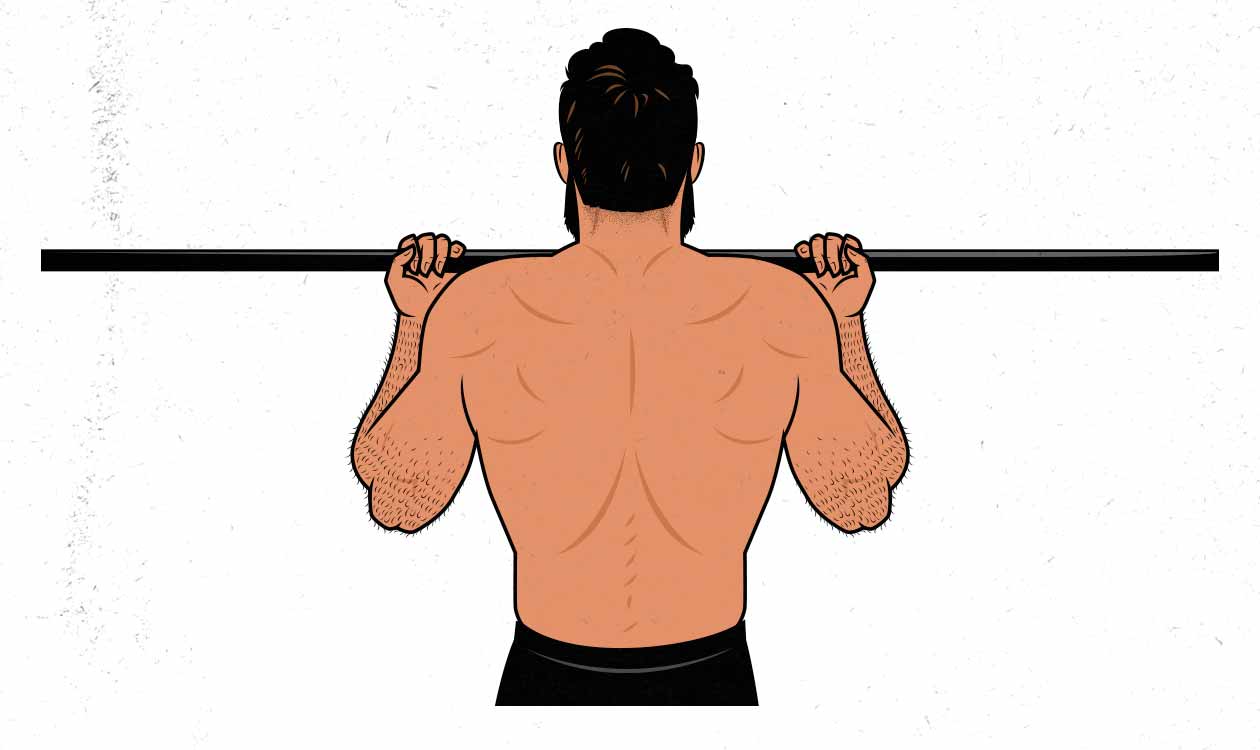
Being Active Improves Our Sleep
We’re going to talk about how cardio and weight training can improve our sleep, but even just being active can help. For example, this study found that people who spent time golfing, walking, and gardening tended to sleep better than people who were more sedentary.
Note that these types of activity all took place outside, so it might be showing that there’s some synergistic benefit between being active and spending some time outside. Maybe that’s from getting some extra sunshine, some extra fresh air, or some extra relaxation.
Cardio Improves Our Sleep
There’s quite a bit of research looking into how cardio can improve the quality of our sleep, and the improvements are quite profound. For example, this small study found that after six months of adding a little bit of cardiovascular exercise into their routines, people with diagnosed sleep problems saw a number of improvements:
- They started falling asleep more quickly and easily.
- Once asleep, they got deeper and more restorative sleep.
- Their mood improved (and they were less likely to feel depressed).
- They felt calmer and more relaxed.
- They had more energy during the day.
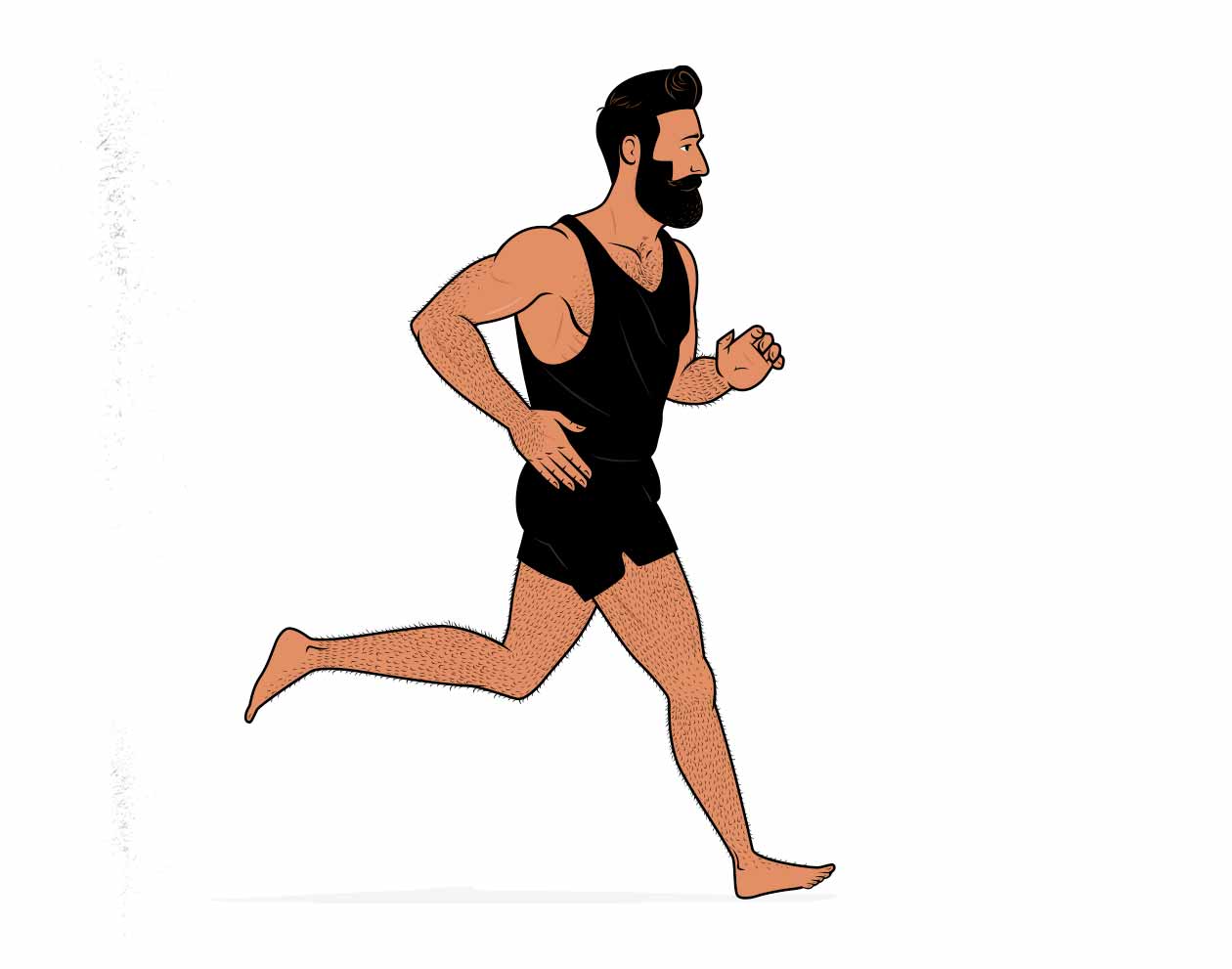
To get these benefits, most experts recommend thirty minutes of casual cardio per day. This lines up fairly well with general health recommendations, too, with Harvard Medical School recommending “thirty minutes, five days a week.”
The research is conflicting about whether doing cardio right before bed harms our ability to fall asleep. It seems like it may, so if possible, better to stop exercising at least an hour before going to bed.
Lifting Weights Improves Our Sleep
The effect that lifting weights has on our sleep is interesting because there are two different ways that it seems to help (meta-analysis). First, lifting weights helps us build muscle and lose fat, improving our body composition, and thus improving our sleep. And second, lifting weights is a form of strenuous exercise, improving both our cardiovascular health and our sleep.
As a result, lifting weights has similar benefits to cardio:
- Lifting weights helps us fall asleep more easily.
- We’re less likely to wake up during the night.
- We have more energy during the day.
- Our mood is better during the day.
- We feel calmer and more relaxed.
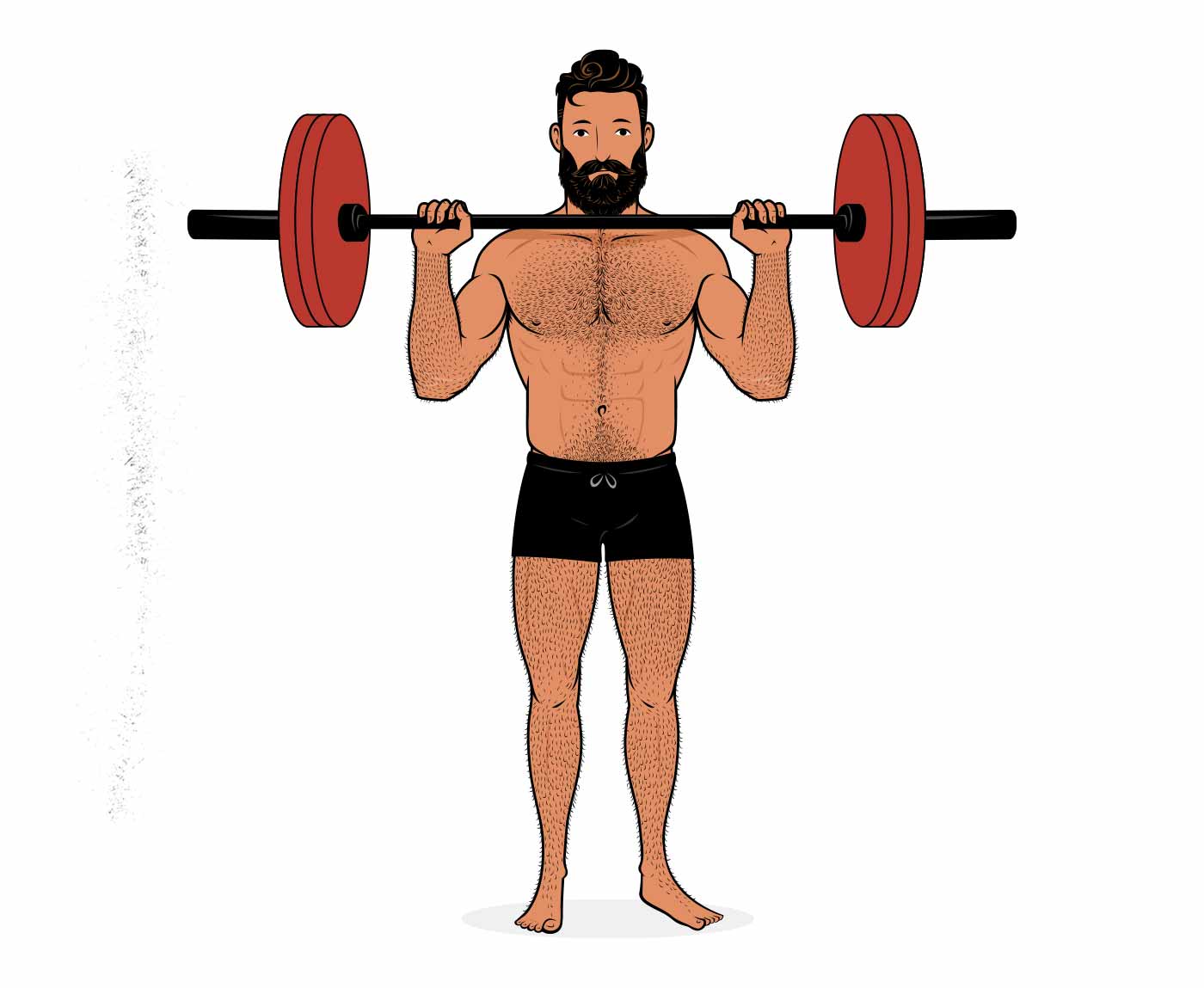
To get these benefits, one study conducted on older adults found that doing three weight training workouts per week was enough to improve sleep by 38% (as well as increasing muscle mass and strength). Again, this lines up well with the recommendations for general health, with the World Health Organization recommending lifting weights at least twice per week.
However, keep in mind that you might not experience the sleep benefits right away. In fact, when you first start following a gruelling lifting program, you may find that you’re going to be sore and waking up achy. Your sleep will probably still be better overall, even at first, but it can take a few months of acclimatization before the benefits accumulate into a noticeable improvement.
If you’re having trouble falling asleep after you start lifting weights because of how beaten up you feel, make sure that you aren’t causing excessive muscle damage by doing too much too soon (here’s our article on training volume), and keep in mind that you don’t need to lift to failure to gain muscle size and strength.
As with cardio, the research is conflicted about whether it’s okay to lift weights right before bed. It seems like it might harm our ability to fall asleep, so if you can help it, I’d recommend stopping lifting at least an hour before you go to sleep.
Is It Okay to Lift Weights Right Before Bed?
One common question we get is whether it’s okay to lift weights in the late evening or night. The idea being that weight training before going to sleep could get us all pumped up, making it harder to fall asleep or reducing our sleep quality. It’s a question I’ve wondered about, too, since I sometimes train in the late evening after putting my son down to sleep.
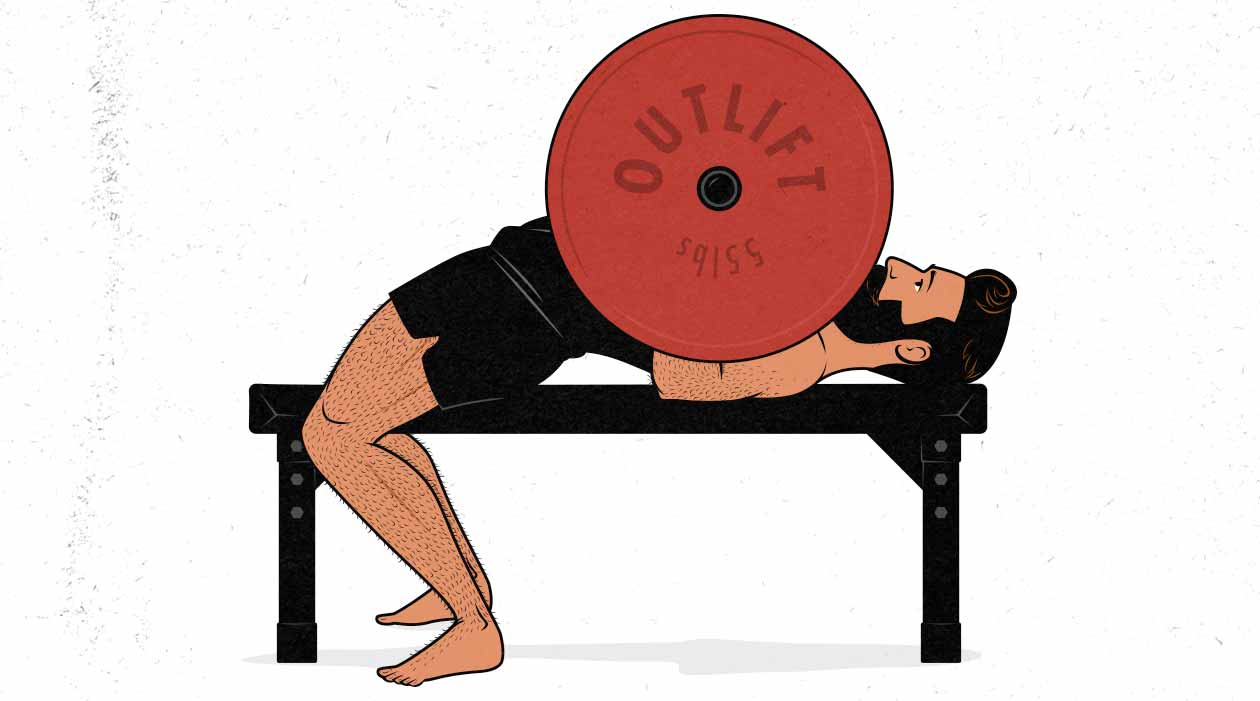
It’s possible that working out right before going to bed could have a negative impact on our sleep, but a recent study found that doing moderate-intensity cardio or weight training 90 minutes before going to bed didn’t make it harder to fall asleep or harm sleep quality.
However, it’s common for people to have whey protein after lifting weights. If you’re training late at night, you may want to avoid that. Supplementing with whey protein right before bed can impair our sleep quality by impairing our ability to produce melatonin, as we’ll cover in the protein section. If you’re training late at night, it’s better to supplement with a more slowly digested protein source, such as casein protein powder.
Overall Exercise Recommendations
If we look at all of the research, the guidelines for improving both our sleep and general health are to be generally active, do at least 150 minutes of cardio each week, and lift weights at least twice per week. This is not only good for our general health but has been shown to improve our overall sleep quality (study).
To make that a little easier, one study found that lifting weights reliably improves our cardiovascular health. The catch is that our heart rate is only elevated for about half of the average bodybuilding workout, meaning that if we spend three hours per week lifting weights, that only counts as doing 90 minutes of dedicated cardio. That means that the ideal exercise routine might look something like this:
- Three weight training workouts per week, each lasting about an hour, and each including some big compound lifts that raise our heart rate.
- Two cardio workouts per week, which could range from high-intensity interval training (HIIT) or sports all the way down to going on long walks at a brisk pace.
- Being active on a daily basis, whether that’s walking the dog a couple of times per day, playing some sort of sport, gardening, or really whatever you fancy.
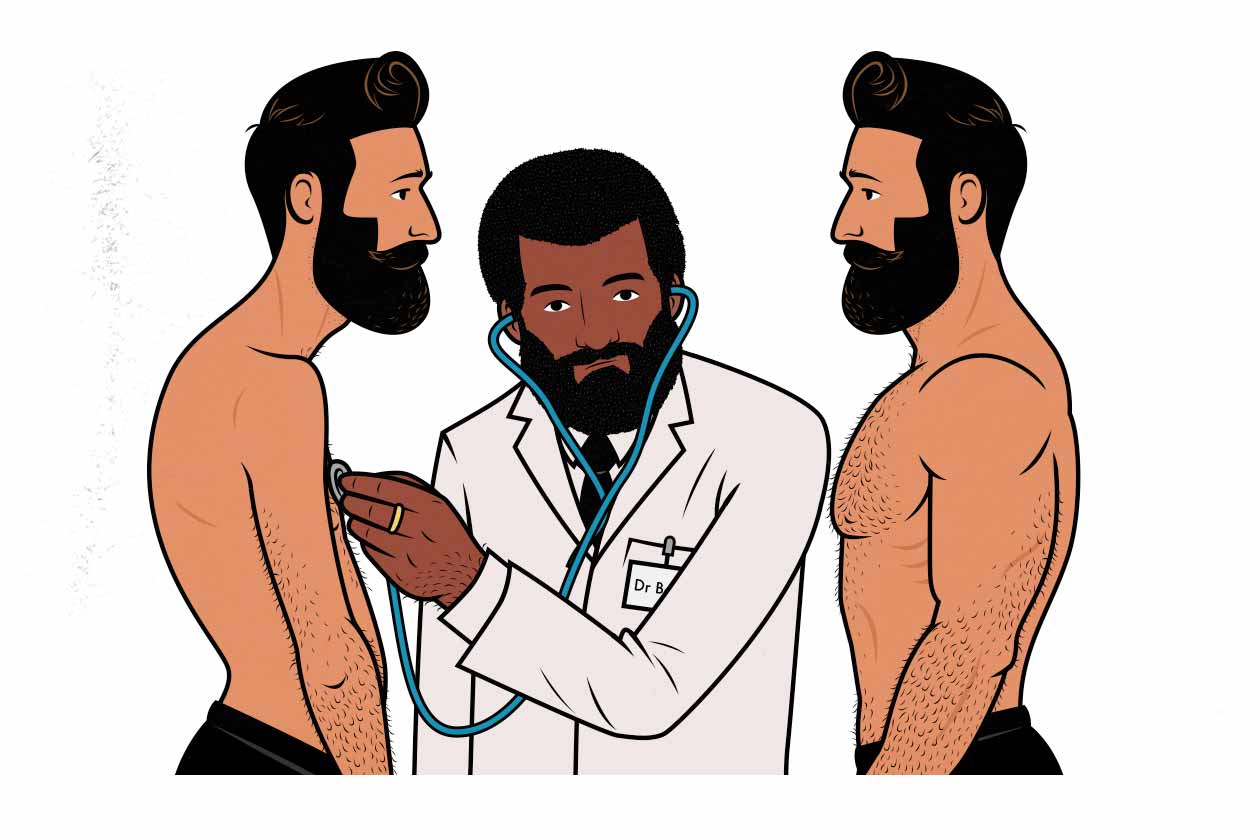
You could flip that around and adjust it to suit your preferences. For instance, you might want to lift weights five times per week, removing the need for dedicated cardio. Or maybe you prefer doing cardio three times per week and lifting weights just twice.
Finally, it’s worth noting that Dr Charlene Gamaldo, the medical director of Johns Hopkins Center for Sleep, says that the most important thing is doing some sort of exercise, whether that’s jogging, powerlifting, or yoga.
To improve our general health and sleep, most experts recommend weight training at least twice per week, raising our heart rate five days per week (with either cardio or weight training), and being active on a daily basis.
Neck Size & Sleep Apnea
One of the more common sleep problems is obstructive sleep apnea, where our throat gets obstructed during our sleep, making it harder to breathe, and reducing the amount of oxygen in our blood. When this happens, a signal is sent to our brain that partially wakes us up, fixing the obstruction but interrupting our deep, restful sleep.
Some people, such as those with narrow nasal passages, inherit a higher likelihood of developing sleep apnea, but, as the Mayo Clinic explains, most risk factors come from being overweight, causing fat to accumulate around the throat.
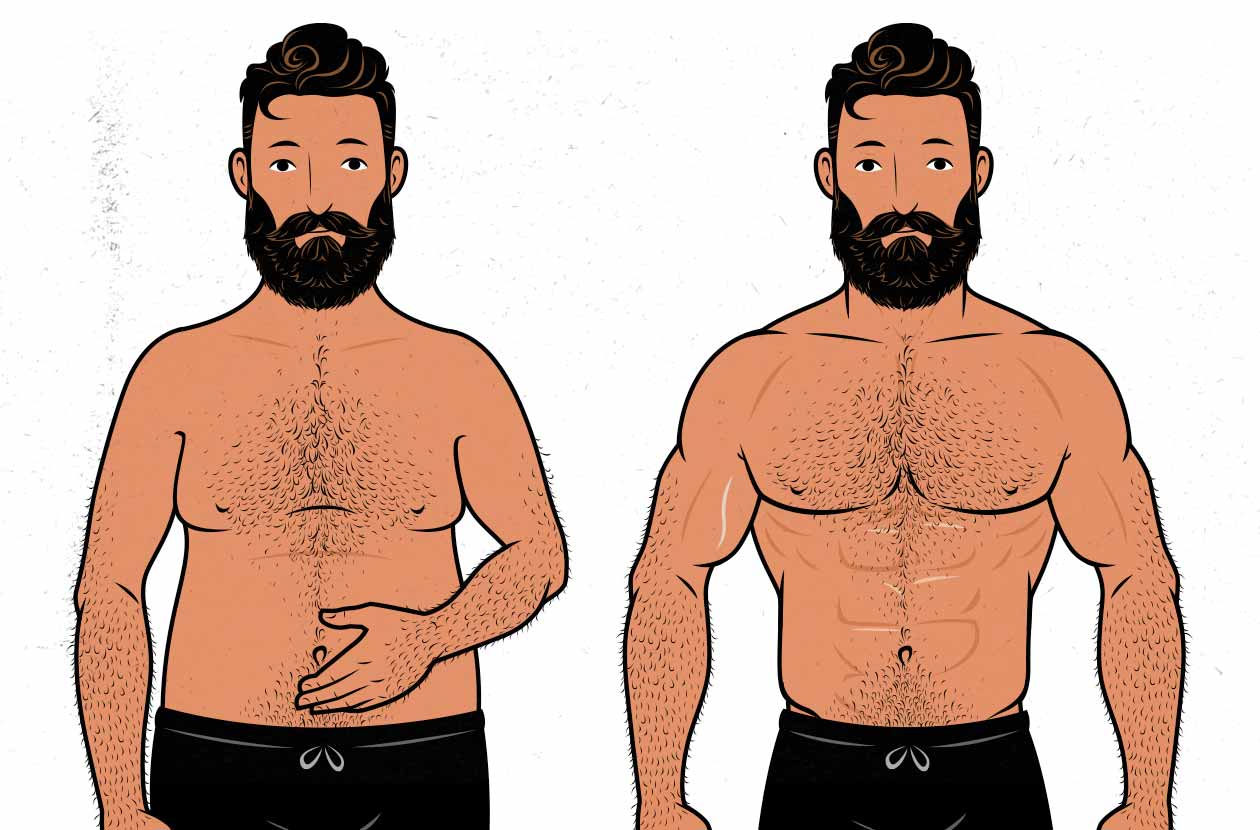
This is tricky because our risk for developing obstructive sleep apnea is often assessed by measuring either our BMI, which acts as a proxy for body-fat percentage, or our neck size, which acts as a proxy for neck fatness. Thing is, neither of those measurements differentiates between muscle or fat, making this confusing for people doing hypertrophy training. The more muscle we gain overall, the higher our BMI will rise, and the more muscle we build in our necks, the thicker our necks will become. Is that a problem?
When it comes to our BMI, instead of focusing on maintaining a lower body weight, we can focus on maintaining a healthy body-fat percentage. That usually means staying under around 20% body fat for men and 30% for women. (If you don’t know your body fat percentage, you can calculate it here.)
Furthermore, this meta-analysis shows that regular exercise improves our ability to cope with sleep apnea, even when the participants didn’t lose any weight. The exact reasons why are still unknown, but the effect is quite strong.
When it comes to our neck size, it gets a bit harder. A study published in the European Respiratory Journal found that having a neck circumference of over seventeen inches increased the risk of developing sleep apnea. That finding was then confirmed by a second study. Neither study differentiated between neck fat and neck muscle, making it unclear whether building an excessively muscular neck would result in the same sleep issues. After all, it’s possible to build a seventeen-inch neck at a low body-fat percentage, and it’s plausible that the extra muscle could crowd our airways.
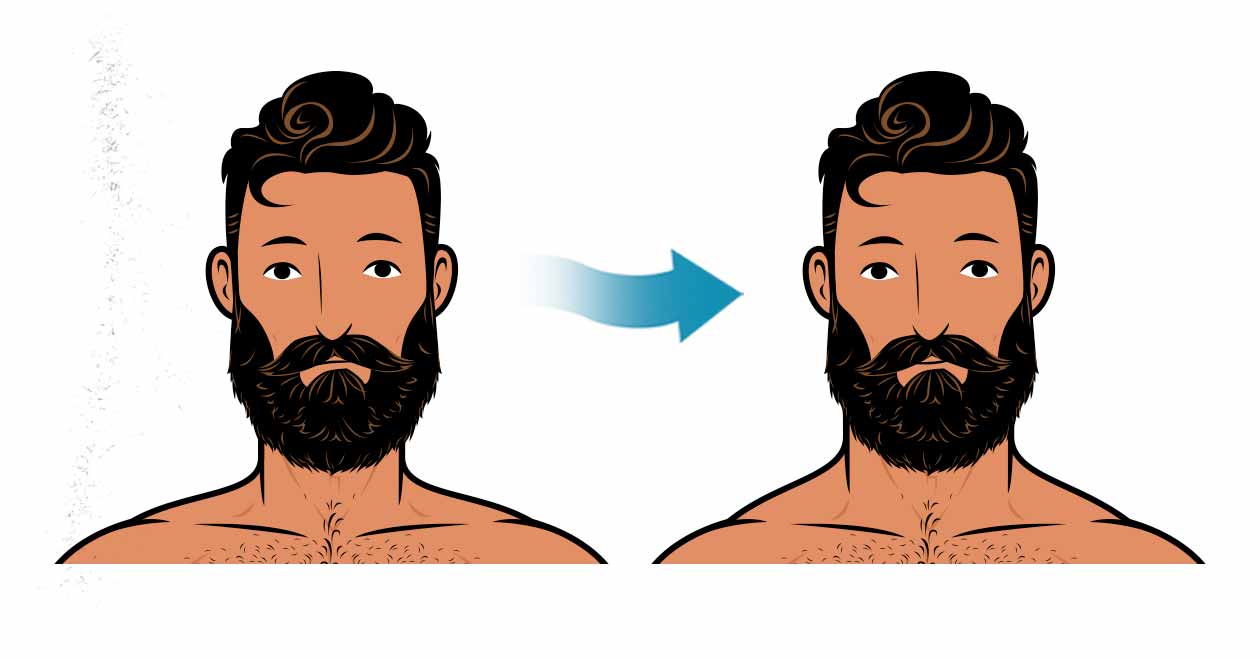
So with neck training, it should be perfectly fine (and even good) to build a thick, strong neck. The stronger our necks are, the less likely we are to suffer concussions and other brain trauma. Plus, having a thicker neck is one of the best things we can do to improve our appearance. Still, to be cautious, it may be wise to stop before reaching seventeen inches.
Overall, to reduce our risk of developing obstructive sleep apnea we should engage in regular exercise, maintain a healthy body-fat percentage, and perhaps avoid bulking up our necks to over seventeen inches.
How Our Diet Affects Our Sleep
Protein Improves Sleep
Eating higher-protein diets tends to improve sleep quality because protein contains the amino acid tryptophan, which is a precursor to melatonin. Therefore, the more protein we eat, the more melatonin we produce, and the better we sleep (study).
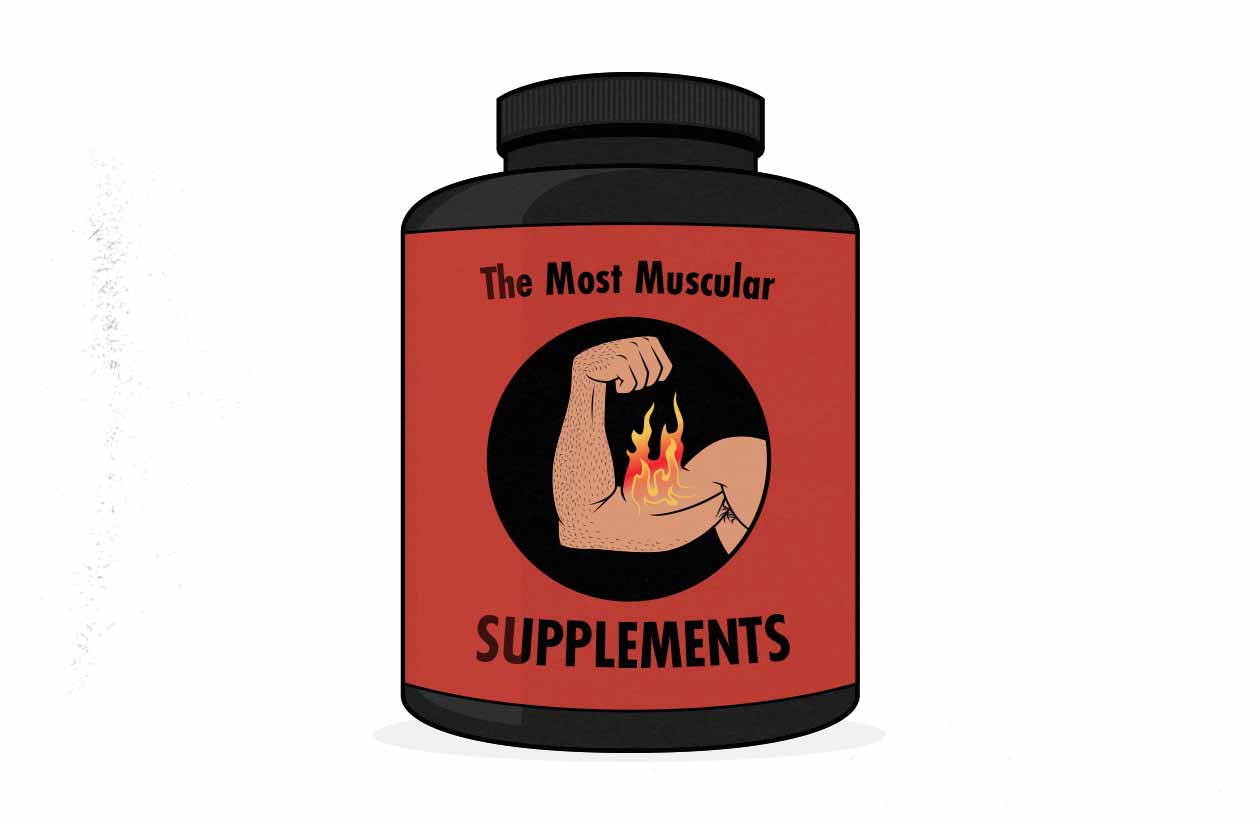
There’s a possible exception to this rule. If you’ve ever had a whey protein shake on an empty stomach right before bed, you may have noticed that it was harder to fall asleep, harder to stay asleep, or even that it gave you nightmares. What might be happening here is that protein contains other amino acids, too, some of which can compete with tryptophan. So if we’re eating large amounts of rapidly-digesting protein right before bed, it could interfere with our ability to produce melatonin and thus harm our sleep. So far, studies haven’t found that having whey before bed negatively impacts sleep quality, though, so unless it’s giving you noticeable issues, I wouldn’t worry too much about it (study).
If you want to play it totally safe, and you want to eat protein before bed—which is perfectly fine—then you might opt for a more slowly digested protein source, such as meat, cottage cheese, Greek yogurt (often with berries), or casein protein powder. Those sources of protein will be digested more gradually, and so they won’t interfere with your ability to produce melatonin, and so they won’t harm your sleep. In fact, having slowly-digested protein right before bed tends to improve your sleep.
Eating a high-protein diet tends to improve sleep, and eating protein before bed shouldn’t be a problem, but you’ll probably want to avoid having whey protein shakes right before bed, especially on an empty stomach. In that case, the protein can be digested so quickly that it interferes with our ability to produce melatonin.
Carbohydrates Improve Sleep
The first way that carbohydrates improve our sleep is by helping us fall asleep more easily. For example, this study found that people consuming a diet rich in carbohydrates fell asleep more easily than those consuming a diet higher in fat. This effect is present in most studies, although one study failed to show a benefit (or downside).
If we look at very-low-carb diets, such as the ketogenic diet, we see that carb restriction can sometimes worsen sleep quality (study) and make people feel sleepier during the day (study). We also see that higher intakes of saturated fat can impair sleep (study).
Finally, eating a diet higher in carbohydrates that are rich in fibre, such as fruits, veggies, grains, and legumes, seems to improve sleep, whereas eating a diet that’s higher in processed sugar can worsen sleep (study).
Overall, eating a diet that’s rich in carbohydrates seems to help us fall asleep more easily and get better sleep. That’s good news, given that diets rich in carbohydrates also help us build more muscle (study).
Some Specific Foods Improve Sleep
Some foods are uniquely good for improving sleep. For example, cherries improve both sleep quantity and quality because they contain a high concentration of both melatonin and serotonin (study).
Having enough zinc in our diets also helps to improve sleep. That’s why it can help to eat foods rich in zinc, such as seafood and meat (study). Nuts, grains, and legumes also contain plenty of zinc, but it isn’t always as easy to absorb (study, study). It’s still possible to get enough zinc from plants, especially when bulking—we’re eating a lot of food—but vegetarians may benefit from supplementing with it.
Big Meals Late at Night
It can be hard to eat enough calories while bulking—so hard that we’ve written entire guides about how to eat more calories. For me, it’s always been the hardest part of bulking. One solution I found was to eat a fairly normal amount during the day, have a regular dinner with my family, and then sneak in a large meal while relaxing before bed.
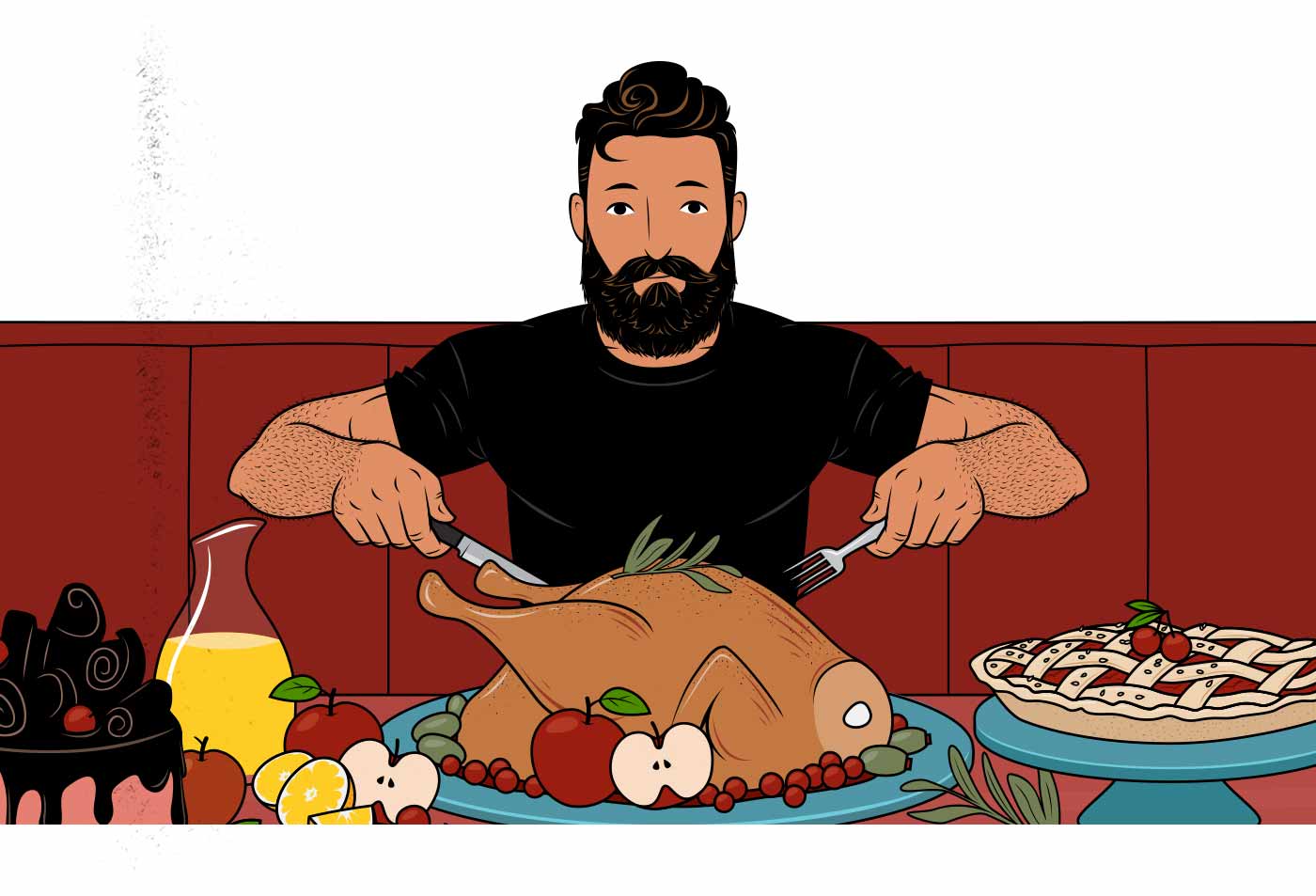
Eating large meals tends to make people feel sleepy, and so what better time to have a large meal than right before bed, right? Better to have a big meal late at night and then drift off to sleep than to eat a big breakfast and then need a siesta. There’s also some modest evidence showing that eating a meal containing protein before bed can improve muscle growth over time (meta-analysis).
The problem with eating big meals late at night—especially those rich in fats and carbs—is that they can interfere with our sleep quality. Yes, we might feel tired and fall asleep more easily, but we might not sleep as deeply, we could run into issues with acid reflux, and large meals before bed have been linked to higher body-fat percentages (study). Anecdotally, having smaller night-time meals can also save us from waking up thirsty or having to tinkle in the middle of the night.
Nowadays, I do still have a meal before bed, but I try to pack more of my calories into my breakfast, lunch, and dinner, and then before bed, I stick to higher-protein meals, such as cottage cheese or Greek yogurt with berries.
Supplements for Improving Sleep
Melatonin & Muscle Growth
The main supplement for improving sleep is melatonin, and there’s quite a bit of evidence showing that supplementing with it before going to bed can make it easier to fall and stay asleep. But what’s especially relevant is how supplementing with melatonin seems to cause simultaneous fat loss and muscle gain.
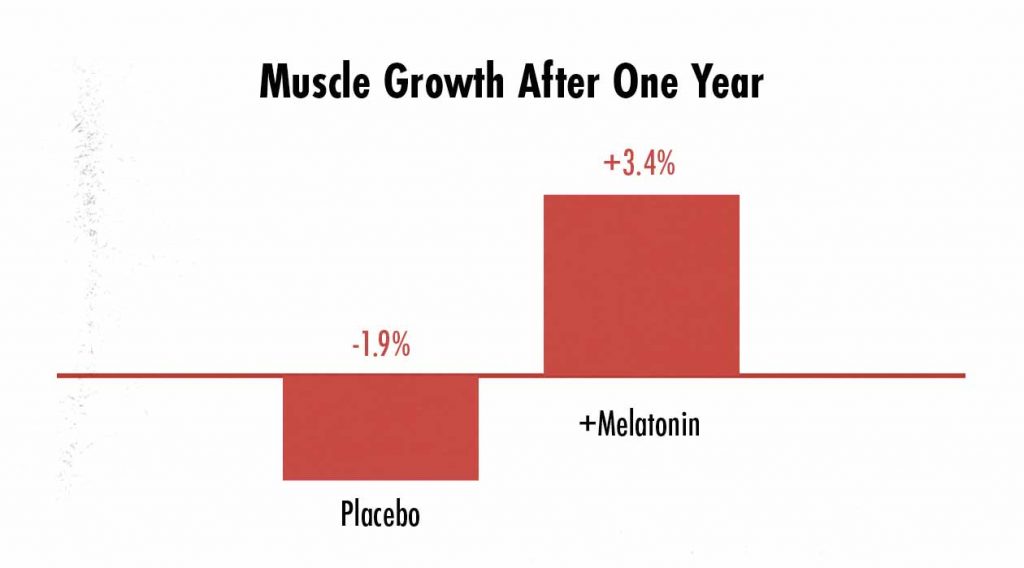
In a yearlong study on 81 women, taking 1–3mg of melatonin before bed every night caused their muscles to grow by 3.4%, whereas the placebo group lost 1.9%. Now, that’s not a ton of muscle growth, but these women weren’t doing hypertrophy training or eating a bulking diet. All these women did was start taking a pill before bed, and those getting the melatonin gained a significant amount of muscle, whereas the placebo group gradually lost muscle. That’s interesting.
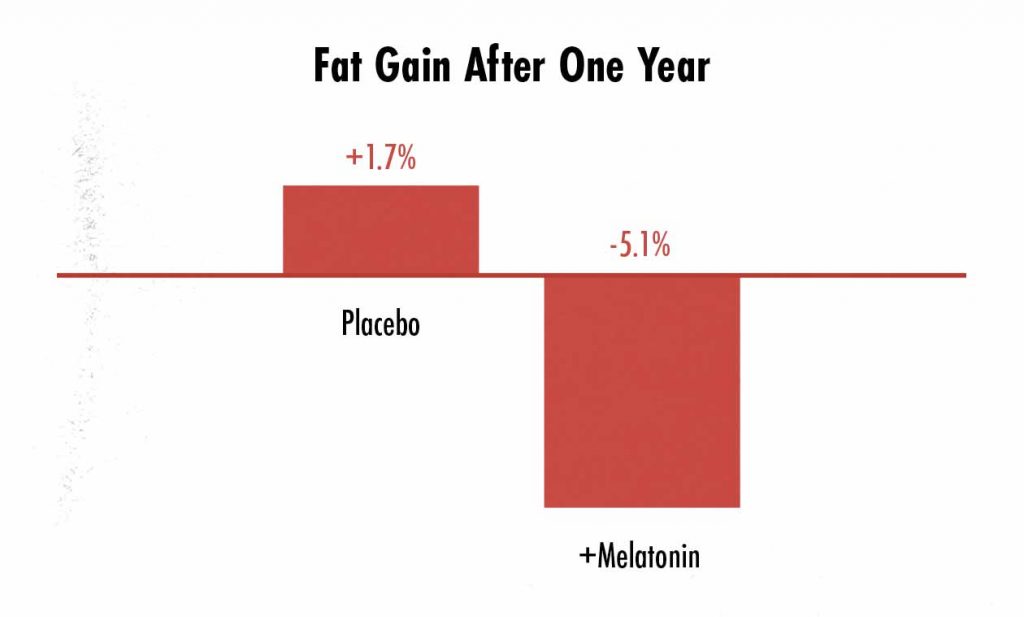
The study also found that the melatonin group lost a significant amount of fat over the course of the year, whereas the placebo group gained fat. And again, this fat loss was in people who weren’t put on an exercise or diet program. The only thing that was changed was the melatonin, and thus presumably the quality of their sleep.
Now, one way to look at this data is to see it is a reason to supplement with melatonin, and that certainly makes sense. This was, after all, a study looking into melatonin supplementation. But another way to look at this study is simply to realize that melatonin has an important role in regulating our sleep as well as our body composition. We don’t necessarily need to supplement with it if we’re producing enough of it naturally.
As we’ve covered above, the best ways to produce more melatonin are to get some sunshine early in the day, dim the lights in the evening, steer clear of bright electronics at night, and do something relaxing in the hour(s) leading up to bed.
There are also foods that help with melatonin production. If we eat plenty of protein during the day, then we’ll have plenty of tryptophan to convert into melatonin in the evening. There are also foods that are rich in melatonin itself, such as:
- Cherries
- Corn, asparagus, and tomatoes
- Grains and oats
- Nuts
However, keep in mind that the amount of melatonin found in foods is quite small. For instance, Montmorency cherries are known for containing high amounts of melatonin, but they only contain 0.013 milligrams per kilogram (study). So the lowest dose used in this study (1mg) contains 77 times more melatonin than a kilogram of cherries. Oats can have quite a bit more melatonin—0.091 milligrams per kilogram—but the supplement still had eleven times that amount.
Even so, I like to have some oatmeal with berries and casein powder while reading by dim light before bed. Not necessarily for the melatonin, but rather because oats and casein are great for fueling muscle growth. I’ve also been known to snack on some frozen cherries while watching a movie with my wife (with the backlight dimmed). Again, not necessarily for the melatonin, just because cherries are a healthy and enjoyable dessert.
But if all Hell breaks loose and my routine goes out the window, I have some melatonin on hand that I can supplement with. What’s kind of interesting is that if I use my pre-bed routine and supplement with melatonin, then I wake up extremely groggy in the morning, perhaps because I have too much melatonin in my system. So I only use the melatonin if something has gone wrong. And for that, it’s very good. If bedtime is approaching and I’m feeling totally wired, within thirty minutes, I start to feel calmer and sleepier (although the placebo effect could explain that as well).
To summarize, a yearlong study found that supplementing with 1–3mg of melatonin before bed caused simultaneous muscle growth and fat loss. However, it may be possible to get these benefits from living a lifestyle that allows you to naturally produce enough melatonin: eating plenty of protein, some sun during the day, dim lights at night, and relaxing before bed.
Ashwagandha, Sleep, Stress & Testosterone
Ashwagandha is most famous for easing stress and increasing testosterone production and lowering cortisol production, with most of the research being done in older men with lower baseline levels of testosterone (study). But it seems to improve hormones and stress in adult men and women of all ages (study, study, study). It may even improve muscle growth, fat loss, improve blood sugar levels, and lower our cholesterol (study). For instance, this study found that men between the ages of 18–50 who supplemented with Ashwagandha gained more muscle and lost more fat than the placebo group, with similar results seen in other studies.
Anything that helps us reduce our levels of stress and better manage our hormones could potentially improve our sleep, and a new study found that ashwagandha does indeed improve sleep quality in older people (study). Would that apply to younger people as well? It’s unclear, but it might.
Perfection Isn’t Required
There was one neat study where they randomly split the participants into two groups, telling half of them—at random—that they’d gotten a good night’s sleep and telling the other half that they hadn’t. The group who believed they’d slept well significantly outlifted the group who believed they hadn’t.
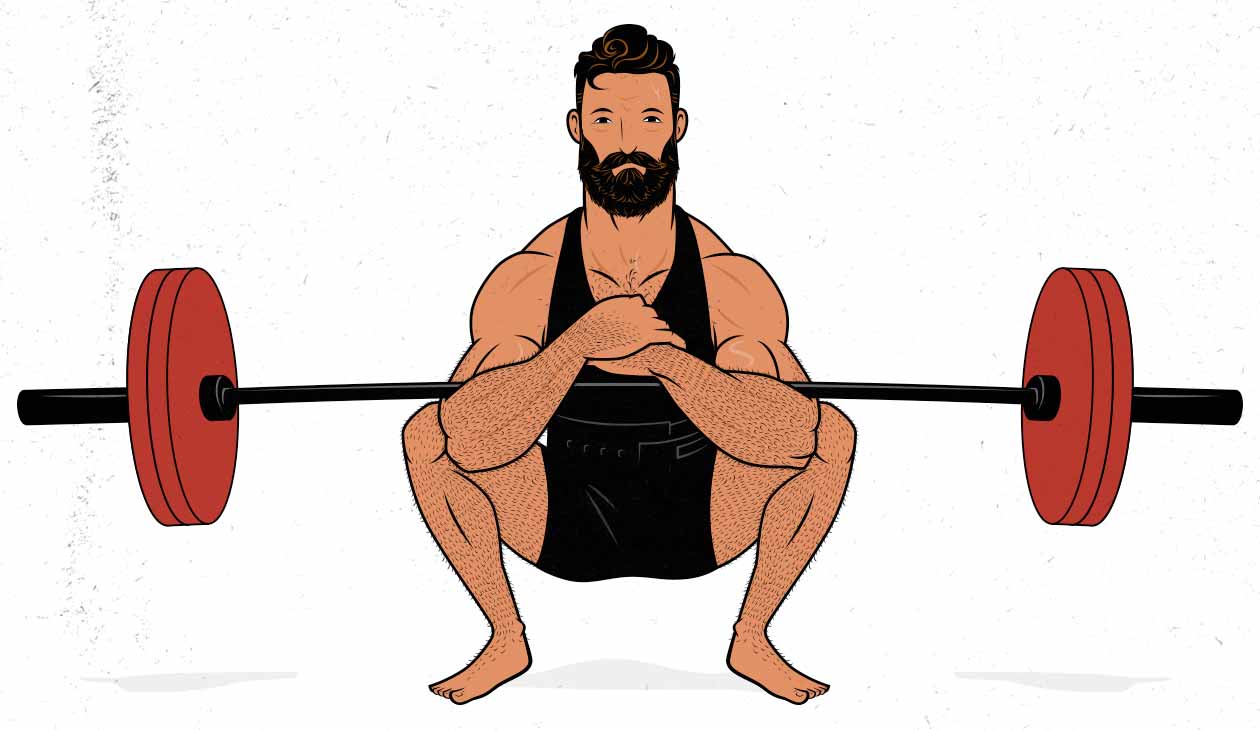
There are two things going on here. The group who believed they had gotten a good night’s rest were benefitting from the placebo effect. They knew that they could kick ass, and so they did. Meanwhile, the group who believed they’d gotten poor sleep suffered from the nocebo effect. They doubted their ability to perform well, and so they didn’t.
Improving your sleep is one of the best things you can do to improve your muscle-building results. But remember that you can build muscle even if your sleep isn’t perfect, and sometimes you might have to. Plenty of busy people wake up extra early to sneak in a workout, and it works. Our bodies are strong and adaptive. We can do this. We’re scrappers.
Main Takeaways
Getting enough quality sleep each night improves our motivation, willpower, and workout performance. Separate from that, it also increases our testosterone, reduces overall cortisol production, dramatically reduces fat gain, and speeds up muscle growth by around 30%.
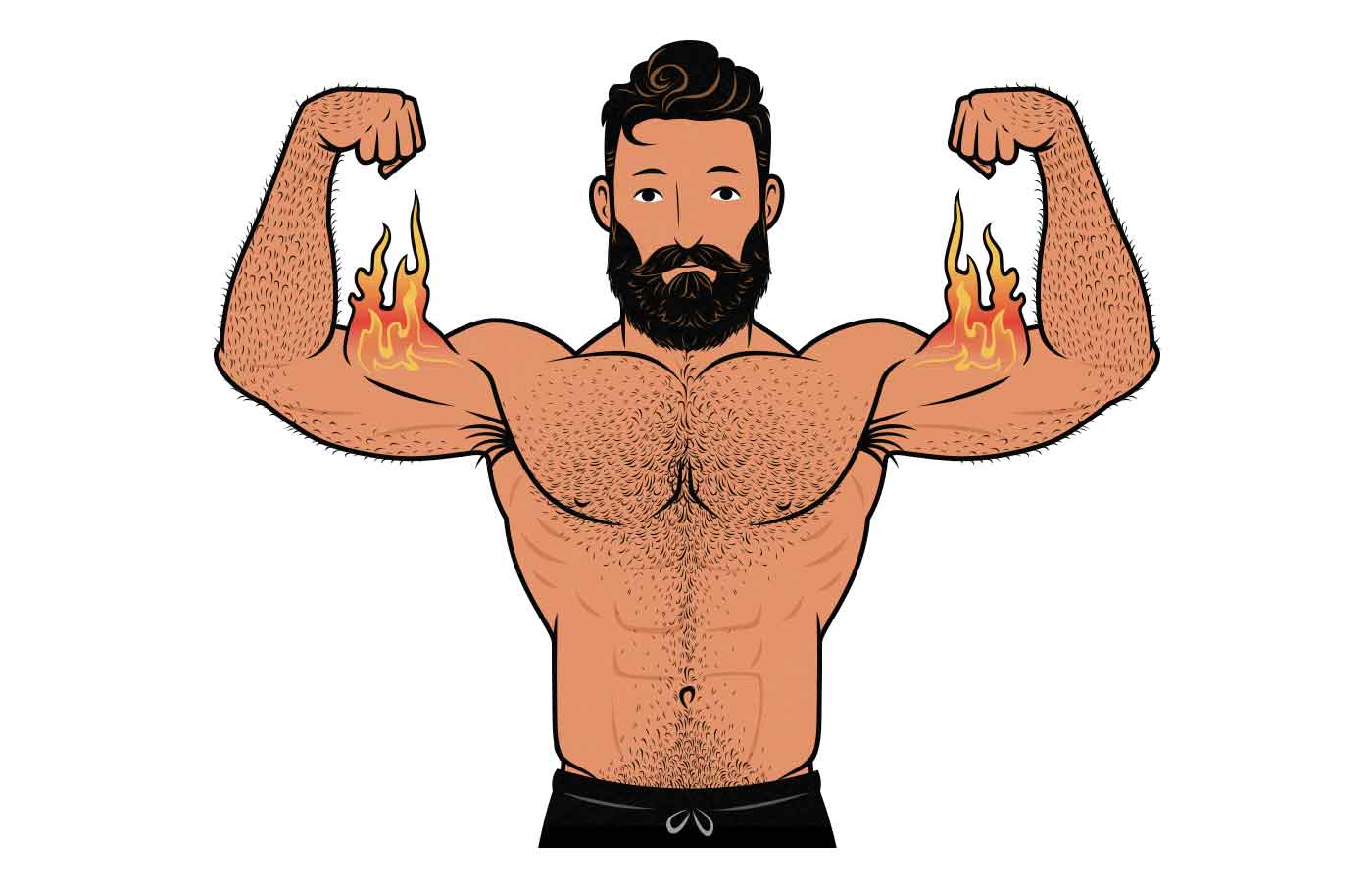
There are a few things you can do to improve your sleep:
- Get into a routine of relaxing in the late evening, an hour or two before you need to head to bed. This might mean reading or having a warm shower. Everyone is different, but most people will benefit from minimizing electronics and bright, blue lights.
- Set aside at least eight hours to be in bed, and set an alarm clock to make sure that you get to bed on time. Even if you don’t need to be up at a specific hour, it’s still usually best to go to bed at a similar time every night.
- Find a relaxing bedtime activity that helps you drift off to sleep. I enjoy reading speculative fiction, but some people prefer podcasts, meditation, or prayer.
- Engage in regular exercise, ideally including both cardio and weight training. The improvement might be noticeable right away, and the effects will accumulate over the coming months.
- Be active on a daily basis, such as going on daily walks outside. The activity will improve our general, and the sunshine will help us produce more melatonin, both of which will improve our sleep.
- Eating a diet that’s reasonably rich in protein can improve sleep quality.
- Eating a diet rich in carbohydrates can make it easier to fall asleep, but it’s probably best not to eat large amounts of carbohydrates right before going to bed.
- Eat enough calories to build muscle, but try to avoid eating giant meals right before bed. If you enjoy huge meals, better to have them earlier in the day.
- Be lean and muscular. Building muscle and keeping your waist trim can improve your sleep (largely by preventing health problems that impair sleep).
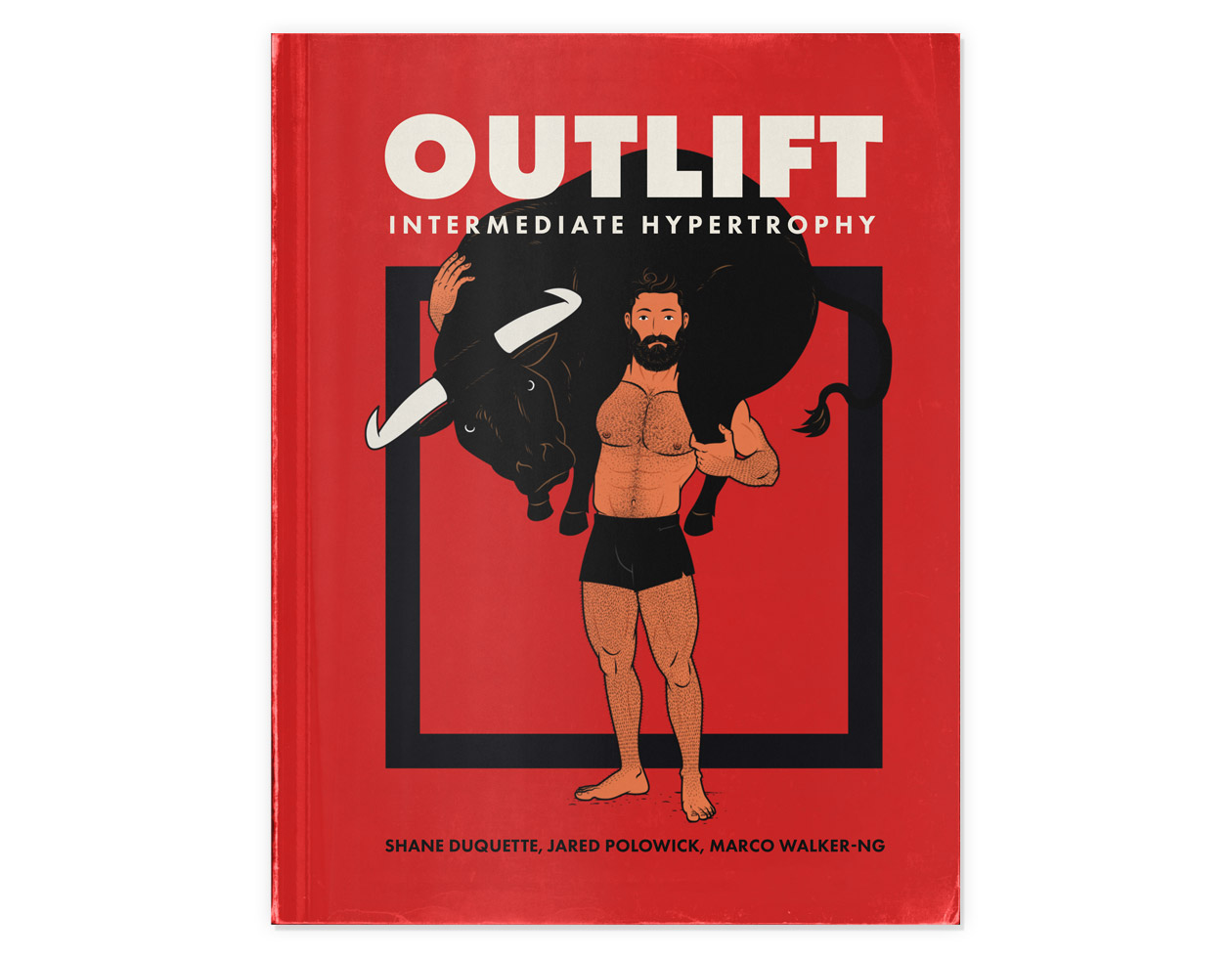
If you want more muscle-building information, we have a free bulking newsletter for skinny guys. If you want a complete hypertrophy program that includes lifting, diet, and even sleep optimization, check out our Outlift Intermediate Bulking Program. Or if you’re still new to bulking up, check out our Bony to Beastly Bulking Program (for men) or our Bony to Bombshell Bulking Program (for women). If you liked this article, I think you’d love our full programs.



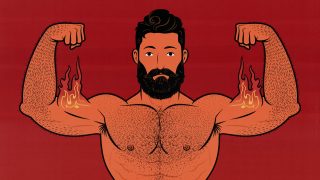
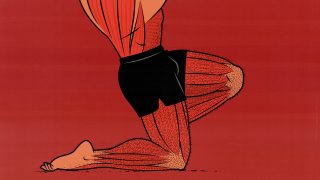

Great article. I picked up a few additional tips after suffering from insomnia, that seem to help:
-try meditation earlier in the day as well, I like to do a 10-20 minute body scan about an hour after lunch
-try setting a timer to remind you every 20 minutes to take a few deep breaths (this is also helpful if your job is sedentary, because you can get up, stretch, move around, and look away from your screen)
-try amber or red glasses 1-2 hours before bed so watching tv to relax doesn’t stress you out (is it too much blue light!?!)
Thank you, Adriano!
I use those amber glasses at night as well, even if I’m not watching TV. And you’re right. I think I get more benefit from the placebo effect and the avoidance of the nocebo effect than by ever-so-slightly reducing my exposure to blue light at night. I mean, I’m usually just using the glasses to read by a dim lamp.
I’d definitely add to this article that most of all, follow the routine you figured out helps you best. Because there are some oddballs in this world when it comes to sleep (including me).
I cannot for the life of me fall asleep on an empty stomach. Even if I eat an hour or two before bed and I’m not really hungry when going to sleep, I will still wake up sooner, with no chance of sleeping a full 8 hours, maybe not even 6. The hunger wakes me up. I sleep my best when I eat a nice meal before bed. Not any food, but a lunch-type food, so the opposite of what the experts advise. That way I usually wake up after about 8 hours, but I can stay in bed and fall asleep again within minutes if needed.
And I cannot fall asleep in a cold room either. I need a warm room. Not hot, warm. But even in a hot room, I’ll fall asleep more easily than in a colder one. In a colder one, I’ll just move around until I get warm enough, which usually means hot and active, which in turn means I’ll stop being tired. But then again, unlike most people, I thrive in the heat. I don’t have a general problem with cold weather (other than not liking it) because I can warm up very easily, but 30-35°C is where I’m at my best.
All in all, for oddballs like us, I think it’s important to mention that not everybody will fit into the frame of current sleep research. But maybe one day, the researchers will know more (and better) differences when it comes to sleeping needs.
Hey Adriana, that’s a great point! These are just supposed to be default recommendations and ideas. Everyone is indeed different.
I’m the same as you. I can’t fall asleep on an empty stomach. I eat a decently sized meal every night before bed, and if it’s too small, or if I have it too long before falling asleep, I have a really hard time sleeping that night. With that said, it could just be my routine. Perhaps if I got used to a different meal schedule, my body wouldn’t expect food at that time, and so it would be okay. I’m not sure on that one, but I definitely hear you. I do the same thing 🙂
You’re a total weirdo for wanting to sleep in a warm room, though. There’s nothing better than a cold room with plenty of blankets. It sounds like you might be possessed by some sort of demon. Maybe you need more exorcise.
Hahahah I get enough exercise 😀 I think the demon might be my southern (south Mediterranean and probably Middle Eastern) roots. I’m not sensitive to cold (except my skin, yikes), but I thrive in the summer heat
Another thing might be that my body automatically tries to heat itself up when it’s cold outside, and it does so very efficiently, because I can get hella warmed up and hot during winter very quickly. So I guess my body needs warm air to be able to relax and lower its temperature for sleeping. Not going to lie, I though this was related to me being a true ectomorph, but judging by your comment, it is not. I guess it’s just my southern genes then
I love your articles! They apply to both men and women, the Bombshells and the Beasts. They are well researched, well thought out, well organized and well laid out on the page for easy reading. You are a reader and a writer and a logical thinker, and sometimes that sense of humour comes out of nowhere to put a surprise in the sentence!
Keep writing and we’ll keep reading! I find good info I can use in all of your articles.
Thank you so much, Gail!
[…] On the first day, the calf only weighed sixty pounds, but Milo was still a beginner, and that was enough to challenge his small muscles. When he got to the top of the hill, his upper back was beginning to round, his traps were burning, and his biceps were shaking like a palm tree in a hurricane. When Milo set the calf down, he collapsed on the ground, breathing fast and hard. When he stopped feeling nauseous, he went home, ate lots of good food, and got plenty of good sleep. […]
[…] go into this in more detail in our article on sleeping for muscle growth, but it’s usually a bad idea to consume a bunch of simple carbs and whey protein before bed. […]
9x6wh4
Just came across your site yesterday and read a solid dozen plus articles, great work!
I was surprised you didn’t touch on naps in general or specifically after workouts. I’ve read and feel that doing shavasana for about five minutes after a workout helps kickstart recovery as well.